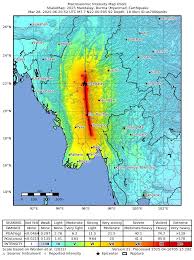Introduction
Myanmar, a Southeast Asian nation known for its rich culture and history, has been in the spotlight due to its ongoing political and humanitarian crisis since the military coup in February 2021. This crisis is not only significant for the people of Myanmar but also holds global implications, particularly as countries and organisations grapple with the extent of their involvement and support for the nation’s democratic restoration.
The Current State of Affairs
Since the takeover by the Tatmadaw, or the Myanmar Armed Forces, the country has faced widespread unrest, protests, and a brutal crackdown on dissent. Human rights organisations report that thousands have been arrested, and many have faced violence or death. As of mid-October 2023, the situation remains dire with multiple regions experiencing armed conflict between the military and various ethnic armed groups, further complicating efforts for peace and stability.
Internationally, responses to the coup have varied primarily between sanctions and diplomatic efforts aimed at restoring democracy. The United Nations and several Western nations have condemned the military’s actions, urging for a return to civilian rule. Conversely, some neighbouring countries have pursued a more diplomatic approach, recognising the importance of stability in the region despite the repression faced by many citizens.
Humanitarian Crisis
The coup has precipitated a severe humanitarian crisis, leading to a significant increase in displaced populations, food insecurity, and health issues exacerbated by a collapsing healthcare system. According to recent reports from humanitarian agencies, over 1.5 million people have been displaced internally, and nearly 14 million require urgent assistance. Access to basic necessities, including food, clean water, and medical care, is becoming increasingly challenging.
International Response and Future Prospects
As the global community continues to respond to the situation in Myanmar, it is evident that a multi-faceted approach is necessary. While sanctions may pressure the military regime, they often disproportionately affect ordinary citizens. Humanitarian aid and support for civil society can provide immediate relief and tools for long-term change. Additionally, regional cooperation remains crucial for any lasting resolution to the crisis.
Conclusion
Myanmar’s current situation is a complex tapestry of military oppression, humanitarian needs, and international diplomacy. The implications of the ongoing crisis extend far beyond its borders, influencing regional stability and global human rights policies. As citizens continue to strive for democracy and rights, it is imperative for the international community to support their efforts whilst crafting responses that consider both immediate humanitarian needs and long-term political solutions.


